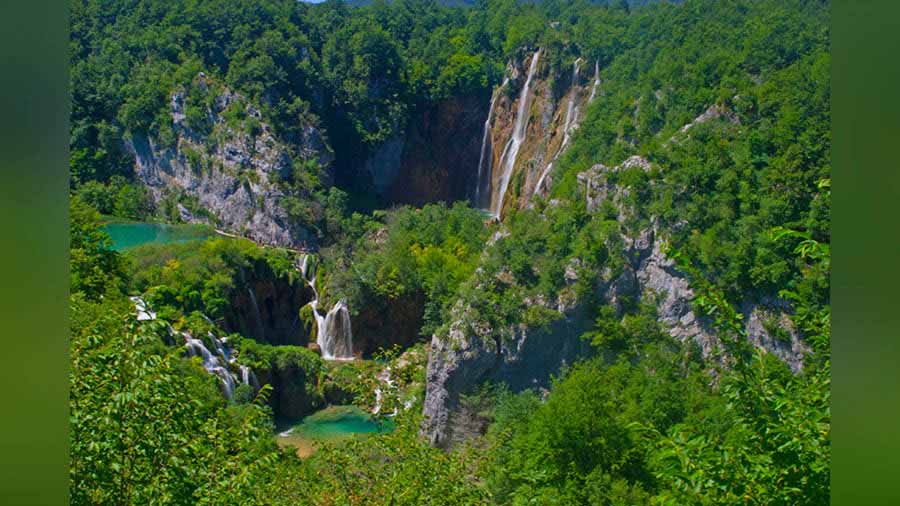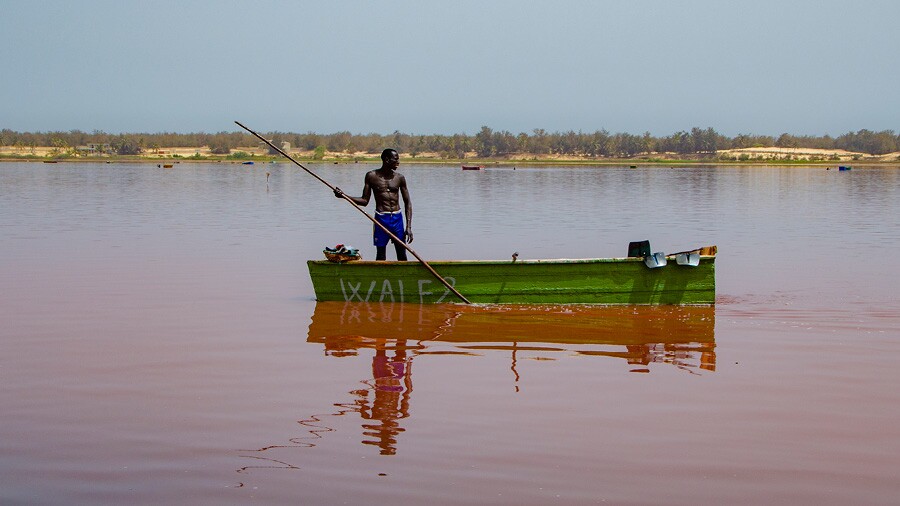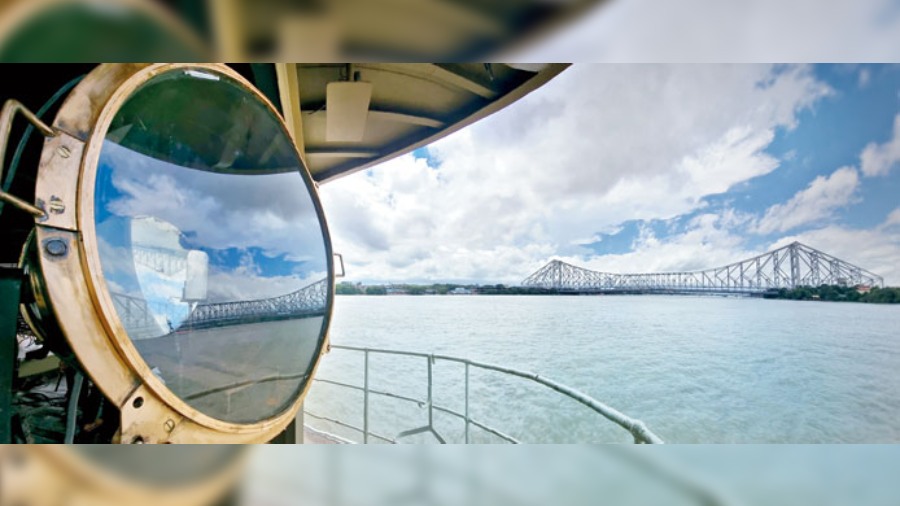Imagine a series of 16 lakes with crystal clear water separated by natural barriers fractured by a series of rivulets, waterfall and subterranean channels creating an amazing maze of cascading waters. This is Plitvice Lakes, a true paradise right in the heart of Croatia.
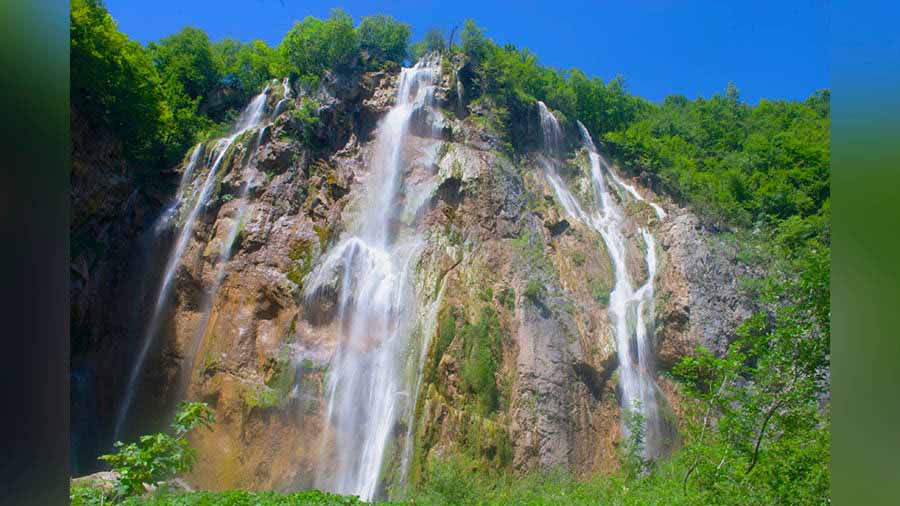
The Great Waterfall at the northern end of Plitvice Lake
The natural barriers that separate the lakes are known as travertine, which is deposited by the action of moss, algae, and bacteria. The travertine grows at the rate of 1 cm per year creating a dynamic environment. With the travertine development numerous magnificent waterfalls are created. Over time, the water changes its course, leaving some travertines dry, but simulating travertine growth in other places. The waters of the lakes have their own distinctive colours, ranging from azure to green, grey and blue. The colours change constantly depending on the quantity of minerals or organisms in the water and the angle of sunlight. This phenomena makes the Plitvice Lakes are ever changing and creates the feeling that the Plitvice Lakes are never the same from one day to the next.
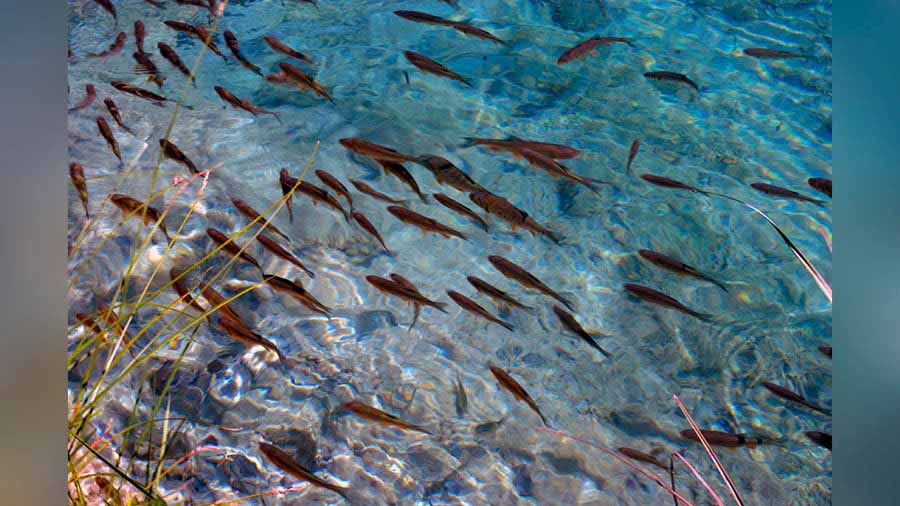
Fishes swim in the crystal clear waters of Plitvice Lake
The 16 lakes are located at different altitudes and descend from 636 m to 503 m in the south – north direction. Water exists from the lowest lake to form the Korana River. The Plitvice Lakes along with the surrounding region have been brought under the Plitvice Lakes National Park and covers an area of about 300 km2. It also has a protected natural heritage under UNESCO.
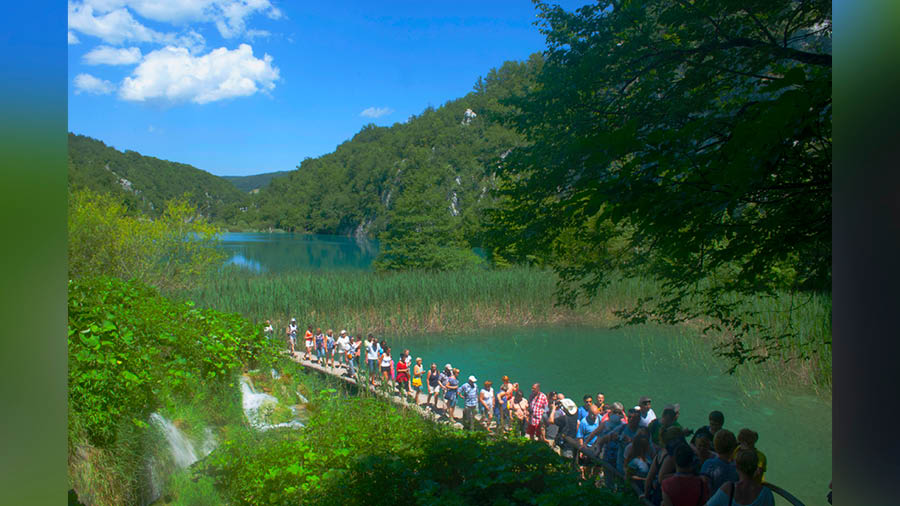
Tourist walk along the wooden trails meandering past the lakes
The park is divided into two zones — upper lakes and lower lakes. The upper lakes consists of the 12 lakes in the southern section. The lower lakes consists of the four lakes in northern part.
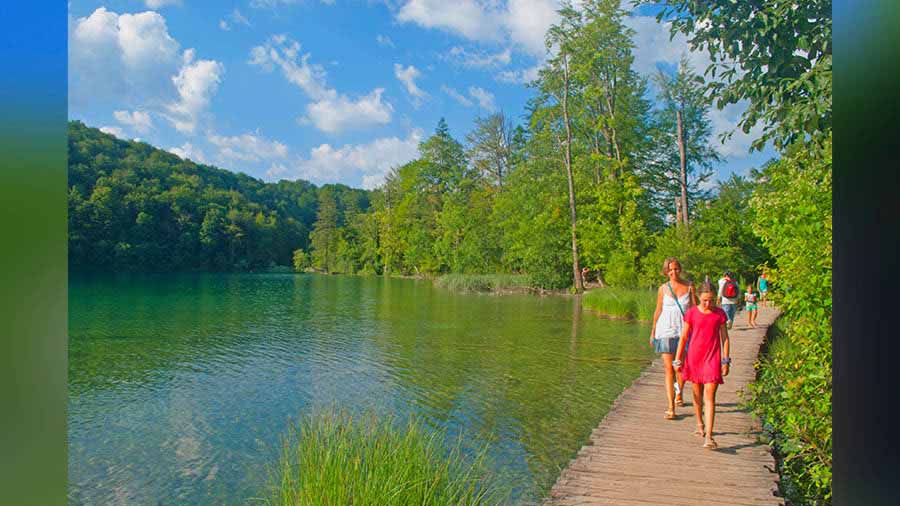
A few tourist in the upper sections of the Plitvice Lakes
Plitvice Lakes can only be explored on foot, but the park authorities provide battery operated eco-friendly buses and ferry service in selected routes. Maps sold at the entry gate provide various options of exploring the lake, ranging from short-hour long leisurely walks to day-long rigorous hikes.
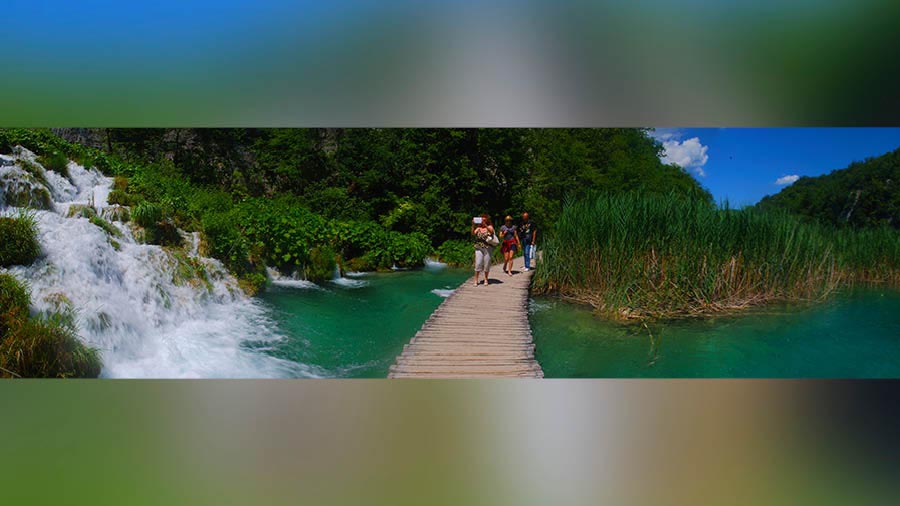
Water Falls and wooden trails
The lakes are best explored from north to south. The Large Waterfall (locally called Veliki Slap) greets visitors entering the National Park through the northern gate. Although technically not part of the 16 lakes, the Great Waterfall is part of a stream that joins the Korana River just north of the lakes. It is a huge waterfall cascading down the rock face. From the Great Waterfall the trail moves southwards along the edge of the lakes. The wooden trails cris-cross several streams and rivulets running along the edge of the lakes. The trails are narrow in most places and thousands of tourists from all over the world often create human traffic jams.
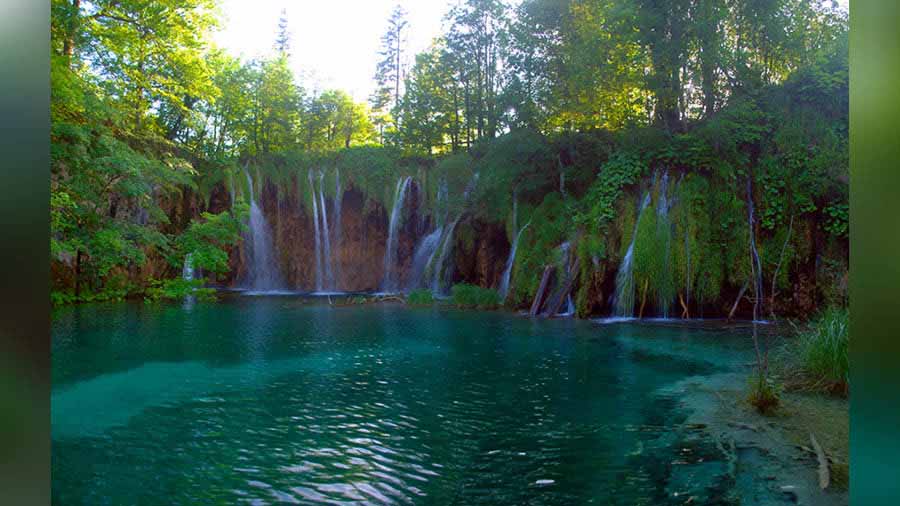
Waterfalls in the upper sections of the Plitvice Lakes
Only a few of the waterfalls have names, one such is the Milke Trnine Slap, a small waterfall, named after one of Croatia’s well known drama artistes.
Meandering past several lakes and streams, the trail leads to the banks of Kozjak Lake, the largest of the 16 lakes and the southernmost of the lower lakes. A battery operated ferry takes tourists to the other side of the lake to end the first phase of the trail.
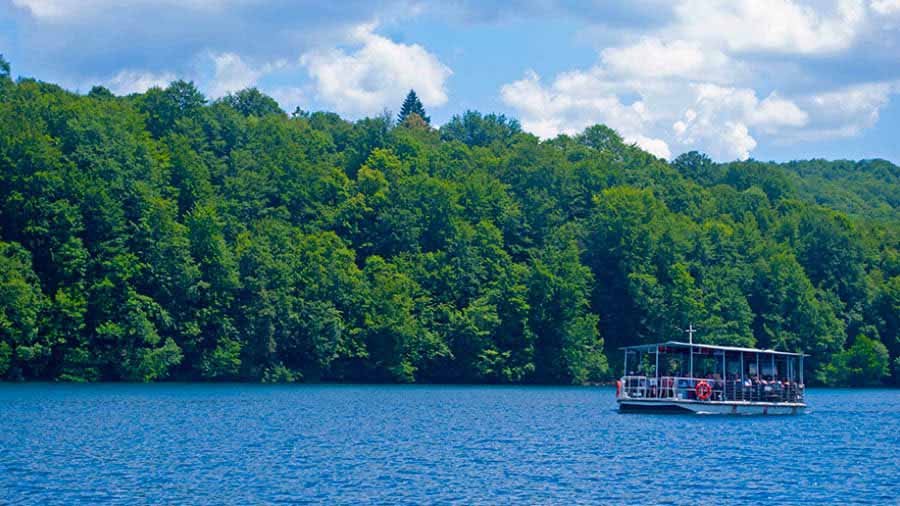
Battery ferry across the Kozjak Lake, the largest of the Plitvice Lakes
The second phase starts with a battery operated bus ride. The huge three coached bus takes tourists to the banks of the southernmost lake Prošćansko Jezero (Jezero means lake in Croatian). This is the highest of the 16 lakes and the trail descends past four upper lakes meandering past numerous waterfalls and streams. This region has fewer tourists and a number of large waterfalls. The Galovački Buk waterfall is the largest of the lot and comprises a series of falls cascading down the rock wall. The trail continues past another spectacular waterfall consisting of a series of smaller falls, draining into a beautiful lake with azure coloured water. The trail finally descends to the banks of Kozjak Lake, where another ferry takes tourists across the lake to the exit gate.
Travel information
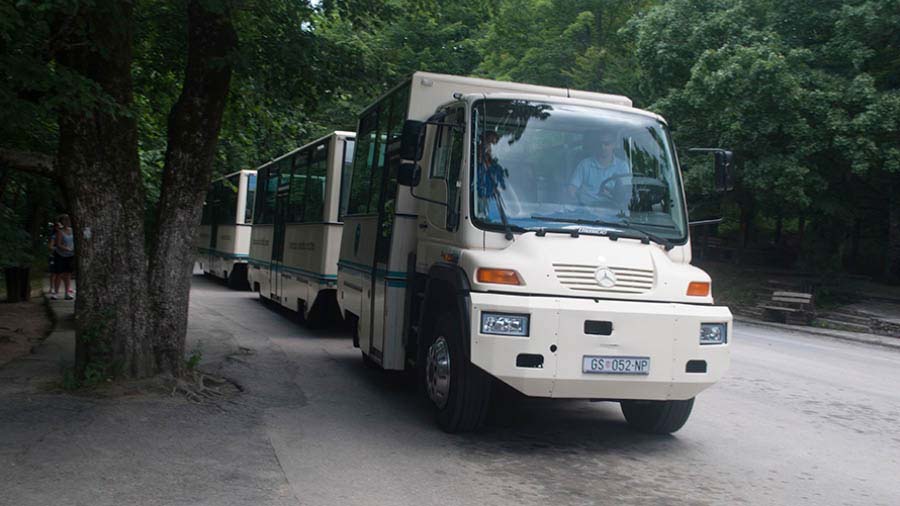
A battery operated bus in Plitvice National Park
- Travel agencies conduct tours from Zagreb (capital of Croatia) to Plitvice Lakes
- The packages have a option of day and overnight tours. A overnight tour is always recommended
